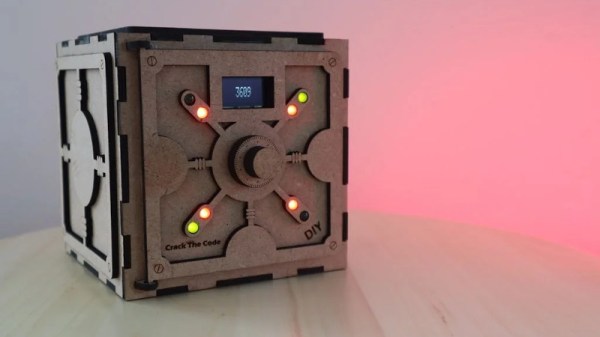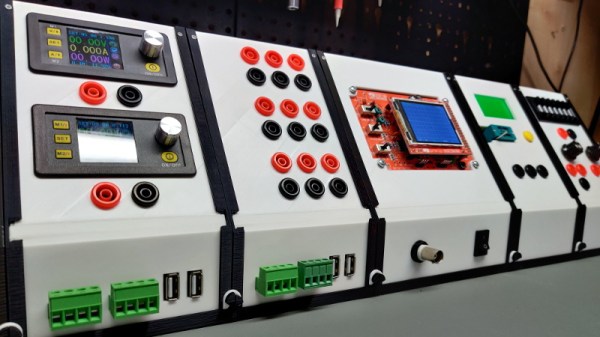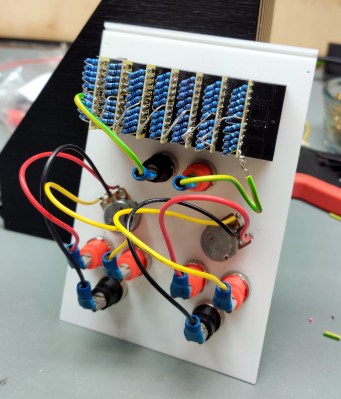If you head out into the real world and start twiddling knobs on random safes, you might find yourself being hauled away by uniformed police. A safer pastime might be playing with your own puzzlebox at home, which is precisely what [thediylife] has done with this build.
The design implements a basic safe-cracking game, in which players try to guess the combination to the safe in a series of rounds. Input is via a rotary encoder, hooked up to the Arduino Uno inside. This project really wins because the finish looks so amazing. The safe is constructed out of 3mm MDF, which is lasercut to shape — an easy one to whip up in the average makerspace. The interface is fleshed out with a small OLED screen and some LEDs, while a servo acts as the lock which holds the door shut. When you see the underside of the face plate with components hot glued into holes you’ll really pale at how clean the business side ended up.
It’s a simple build, and one that would make a great party game with a prize hidden inside. We’ve seen other puzzle-box builds before, too — like the GPS-based reverse geocache build. Video after the break.













